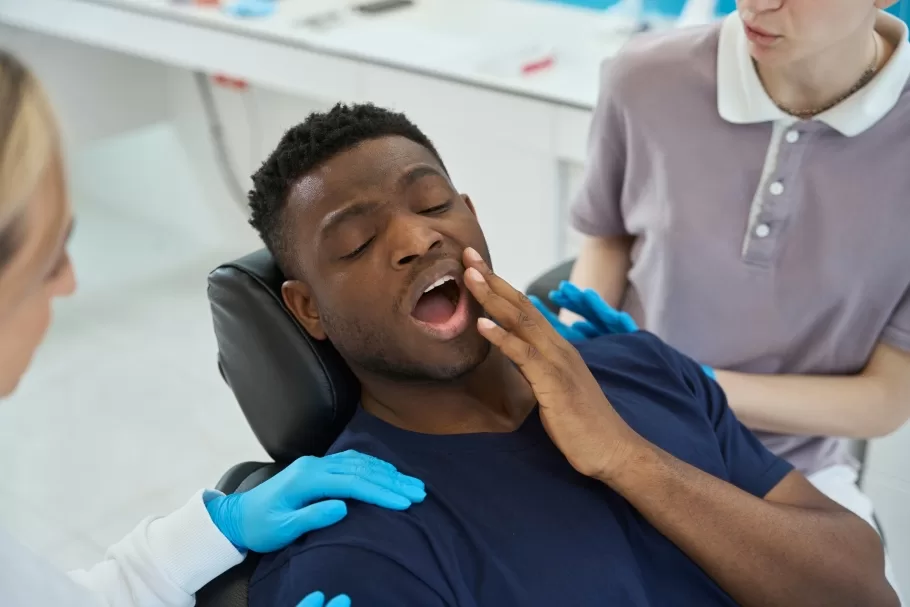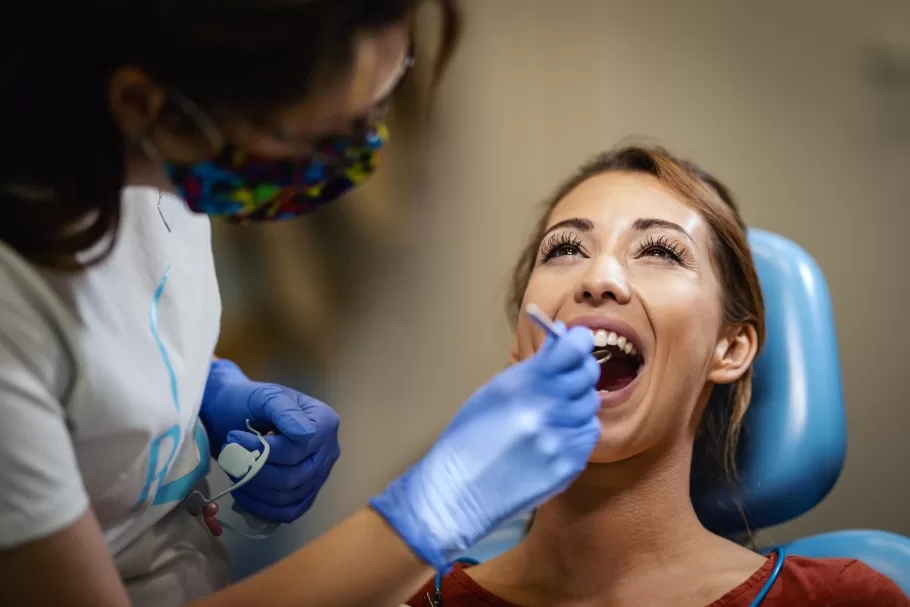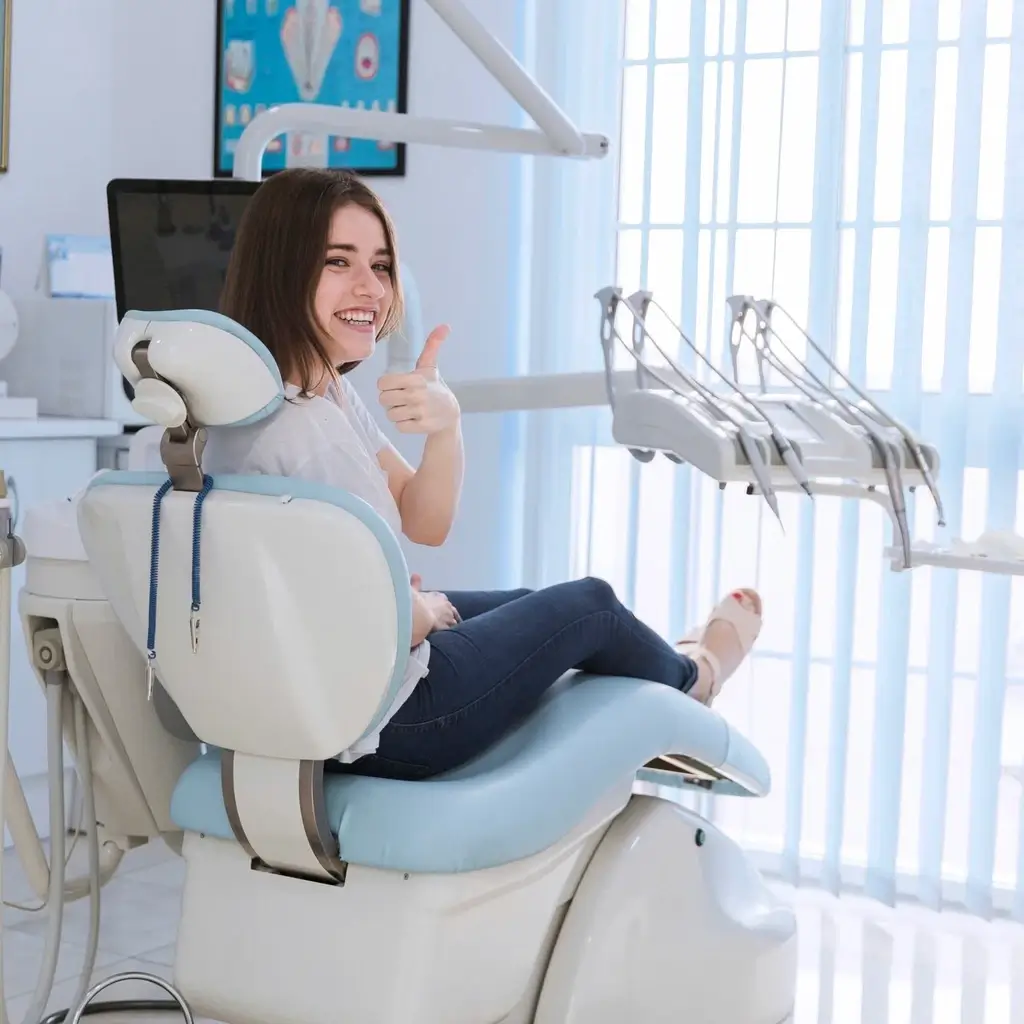Did you know that about 85% of people need their wisdom teeth removed? If you’re reading this, you might be wondering if you’re one of them. We’ve seen countless patients put off dealing with their wisdom teeth until they really started causing problems. Not the best idea!
Why Do We Even Have Wisdom Teeth?
Ever wondered why these troublesome teeth exist? They’re evolutionary leftovers from our ancestors who needed extra molars to chew tough, uncooked foods. As our diets changed and our jaws got smaller, we simply ran out of room for these third molars. But they still try to come in anyway—usually between ages 17-25 (that’s why they’re called “wisdom” teeth).
5 Signs You Might Need Wisdom Teeth Removal
If you’re not sure whether it’s time to get your wisdom teeth checked, you’re not alone. Many patients wait until discomfort sets in before seeking help—but early warning signs are often there long before the pain gets serious. Here are five common signs to look out for:
Jaw Pain or Tightness
Is the back of your jaw aching? That pressure could be wisdom teeth pushing against your other teeth or nerves. Many of our patients describe it as starting with a dull ache that gradually becomes impossible to ignore.
Swollen Gums or Recurring Infections
Have your gums been tender, swollen, or bleeding around your back teeth? When wisdom teeth partially emerge, they create perfect hiding spots for bacteria. These infections can be quite uncomfortable and won’t go away without addressing the root cause.
Crowding or Shifting Teeth
Remember all that time with braces? While not the only cause of shifting, wisdom teeth can contribute to crowding, especially in the lower jaw. We often see patients noticing their bottom teeth overlapping slightly—a clear warning sign.
Headaches or Earaches
Those mysterious headaches or earaches might actually be coming from your mouth! It’s amazing how many of these symptoms disappear after wisdom teeth extraction.
Visible Eruption or Impacted Growth
Sometimes you can see wisdom teeth breaking through. Other times, they’re trapped below the surface (impacted). Either situation typically calls for removal, especially if there’s not enough space.
When Should You Remove Your Wisdom Teeth?

Here’s something we always tell our patients: get those wisdom teeth out in your late teens or early twenties if possible! Why? The roots aren’t fully formed yet, your bones are less dense, and your body heals faster. We’ve seen that patients who wait until their 30s typically experience longer recovery times than those who address it earlier.
Modern imaging tools allow us to show exactly what’s happening with your wisdom teeth and help determine the best approach for your wisdom teeth removal in New Jersey.
What to Expect Before, During, and After Surgery
Knowing what to expect can make a big difference in how you prepare—mentally and physically—for wisdom teeth removal. At Ridge Oral Surgery, we walk every patient through the process so there are no surprises, just smooth steps from consultation to recovery.
Here’s a breakdown of what typically happens before, during, and after your procedure, so you can feel informed and confident going in.
Before Surgery
You’ll have a consultation to check out those wisdom teeth and discuss sedation options. We encourage you to ask questions—our patients often bring lists, and we’re happy to address all your concerns before the procedure.
During Surgery
On surgery day, you’ll likely be sedated, so you probably won’t remember much. The procedure typically takes 30-60 minutes, and while it sounds scary, it’s actually pretty routine for our oral surgeons who perform wisdom teeth removal in New Jersey daily.
After Surgery
Afterward, you’ll need someone to drive you home, where the real recovery begins. Expect some swelling that peaks around day three. Most people manage the discomfort well with prescribed medications, and many return to work or school within 3-5 days.
Recovery Tips to Heal Faster and Feel Better

Want to bounce back quickly? Here’s what we recommend:
- Use ice packs for the first 48 hours (20 minutes on, 20 off)
- Take medications as scheduled—don’t wait until the pain is bad
- Rinse gently with warm salt water starting 24 hours after surgery
- Stick to soft foods like yogurt, mashed potatoes, and smoothies
- Avoid straws, spitting, or smoking (they can cause painful dry socket)
- Sleep with your head elevated to reduce swelling
FAQs About Wisdom Teeth Removal in New Jersey
Is it painful?
No—you’ll be under anesthesia during the procedure, and discomfort afterward is manageable with medication.
Can I keep my wisdom teeth?
You can, but we typically recommend preventive removal. It’s generally easier to remove them before problems develop.
Is it covered by insurance?
Most dental plans provide partial coverage, especially when medically necessary. Always check with your provider beforehand.
How long will I be out of work/school?
Most people return to normal activities in 3-5 days, though you should avoid strenuous exercise for about a week.
Why Choose Ridge Oral Surgery
At Ridge Oral Surgery in Bridgewater, we specialize in wisdom teeth removal in New Jersey. Our board-certified surgeons have performed thousands of extractions, and we pride ourselves on providing personalized care that makes a significant difference in our patients’ recovery experiences.
Experiencing symptoms or have been told you need your wisdom teeth out? Don’t wait! Schedule a consultation with our experienced oral surgeons who can evaluate your specific needs. Trust us, when it comes to wisdom teeth removal in New Jersey, sooner is definitely better than later!





